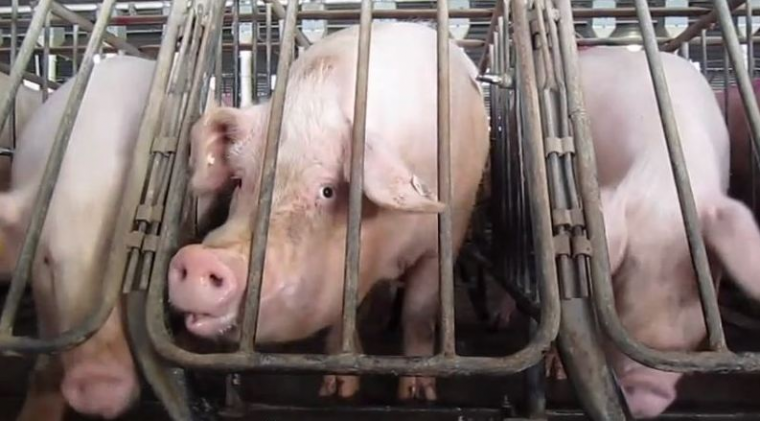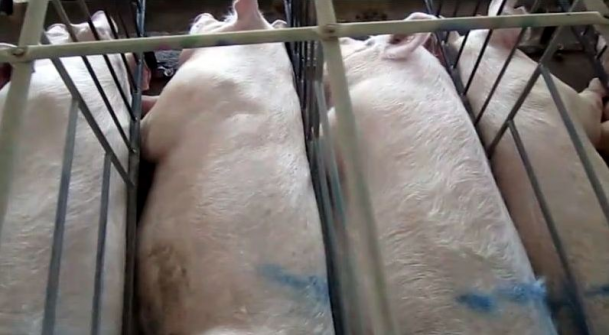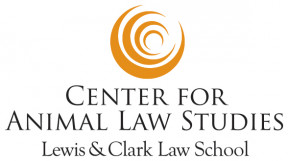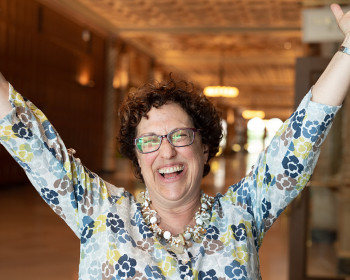The Case Against Extreme Confinement of Farmed Animals
On October 11, 2022, the United States Supreme Court will hear oral arguments on the meat industry’s demand to keep pregnant sows in prison cells no larger than their bodies.
Open gallery

On Tuesday, October 11, 2022, the U.S. Supreme Court will hear oral arguments in National Pork Producers Council v. Ross, Case No. 20-55631. The lawsuit involves the continuing legal effort, led by the pork industry, to overturn the will of California voters who overwhelmingly voted to free farmed animals from cruel, abusive and extreme confinement via Proposition (Prop) 12. I will be listening intently, as will a group of our Lewis & Clark animal law students as the oral argument in this seminal case comes to us live from the Supreme Court. Often, when a lawsuit is appealed to a higher court, the underlying problem gets lost in a sea of technical legal arguments. This blog focuses on the underlying animal abuse problems, how Prop 12 came to be, and how this case made its way to the Supreme Court, so that what is at stake for the animals remains vivid.
The Extreme Confinement of Sows
In industrial animal agriculture, sows (female pigs) are routinely housed in “gestation crates” that are just a bit larger than their bodies. The sows cannot walk or turn around. The only movements they can make are to stand up and lie down. They suffer from physical ailments, due to having to live on hard flooring and receiving no exercise or even basic freedom of movement. They also suffer psychologically, from boredom, frustration and lack of social interactions that they would naturally seek out if they were given appropriate space. For those who may not be familiar with a gestation crate, this is how a sow lives, pregnancy after pregnancy, for the vast majority of their lives:

Credit: Humane Society of the United States, CC by 3.0
This type of extreme confinement has become the hallmark of industrial animal agriculture, where an estimated 99% of farmed animals in the United States are now raised. The “modern” system of industrial animal agriculture system views and treats farmed animals as if they are nothing more than products and machines, and sentences them to a lifetime of suffering, boredom and confinement. That callousness is exemplified by a remark made by Dave Warner, then spokesman for the National Pork Producers Council, in a National Journal interview: “So our animals can’t turn around for the 2.5 years that they are in the stalls producing piglets… I don’t know who asked the sow if she wanted to turn around.”
The History of Prop 12 and California Voters Rejecting Extreme Confinement
There is no federal law that protects farmed animals while they are being raised. Most state level anti-cruelty laws state that they exempt farmed animals or customary and standard husbandry practices, but even if there was evidence of cruelty, state prosecutors are typically unwilling to bring criminal charges (one recent exception is a case in Pennsylvania).
Starting in 2002, voters began rejecting these cruel husbandry practices and voting in favor of initiatives in several states to ban them. California voters were at the forefront of demanding that Big Ag treat farmed animals humanely. Prior to the passage of Prop 12 (which is being attacked in the Supreme Court case), California voters repeatedly made clear their intent to reject the standard practice of extreme confinement for animals raised for food.
In 2008, California voters passed Prop 2, which was codified as CA Health and Safety Code § 25990. It states that no one may confine a farmed animal in a way that keeps the animal from: “(a) Lying down, standing up, and fully extending his or her limbs; and “(b) Turning around freely.” Prop 2 gave producers a phase in period of six years, and became operative on January 1, 2015. The egg industry’s litigation efforts to overturn Prop 2 were unsuccessful.
In 2010, the California legislature passed AB 1437, codified as CA Health & Safety Code § 25996, which requires that, regardless of where they were produced, all shell (whole) eggs sold in California be produced under the same minimum standards as Prop 2. Thereafter, six states sued California, claiming that AB 1437 violates the Commerce Clause or is preempted by federal law. They alleged that egg producers would be forced to spend hundreds of millions of dollars to build new housing that complies with the new California law, or they would have to forego selling in California, which is a major market for their products. The states sued on behalf of the egg producers in their states, asserting parens patriae standing. In Missouri ex rel. Koster v. Harris, 842 F.3d 658 (9th Cir. 2016), amended by 847 F.3d 646 (9th Cir. 2017), the United States Court of Appeals for the Ninth Circuit agreed with the defendants (California) that the other states lacked standing to challenge the law, and it didn’t reach the merits.
In 2018, a clear majority of California voters (63%) voted in favor of Prop 12 which bans the sale of pork in California from facilities using gestation crates to house sows, and it bans the sale of veal from facilities that use crates to house calves. While shell eggs were previously covered, liquid eggs, which constitute approximately one-third of all egg production, were not covered by previous California animal protection laws. Prop 12 corrects that and covers liquid eggs, thus protecting a significantly larger number of chickens. While Prop 2 had mandated that egg-laying hens must be able to turn around and spread their wings, Prop 12 goes further and specifically bans confining hens in cages. It also requires that hens receive enrichments, such as nesting boxes and perches.
The Case Before the U.S. Supreme Court
Rather than honor the clear desire of their consumers and cease a practice that causes suffering to farmed animals, the pork producers have adamantly pursued litigation to invalidate Prop 12. In National Pork Producers Council v. Ross, the Plaintiffs/Petitioners, National Pork Producers Council and American Farm Bureau Federation, allege that Prop 12 violates the dormant Commerce Clause. What is the dormant Commerce Clause? The U.S. Supreme Court has inferred that, implicit in the Commerce Clause of the Constitution, is a prohibition against states passing laws that discriminate against or unduly burden interstate commerce, to wit, the “dormant” Commerce Clause.
For those interested in diving into the intricacies of the legal analysis relating to the dormant Commerce Clause, you can read the briefs of the parties and amici (friends of the court) at this link. This blog instead focuses on the larger underlying issue: that extreme confinement is a cruel practice that consumers should have the right to force the industry to reject and, when they do so, the law should be upheld. Both the District Court and the Ninth Circuit Court of Appeals rejected the pork producers’ challenge to Prop 12. See e.g., the Ninth Circuit’s decision in July of 2021, upholding Prop 12.
Farmed animals weren’t always raised in extreme confinement and it doesn’t have to (and should not) remain this way. As explained in this article, our country moved to a model involving the extreme confinement of farmed animals as standard practice after World War II, in an effort to make meat cheaper and more accessible. That massive shift in practice and public policy came with significant moral (and other) costs, as it removed care and concern for the animals – beyond their value as products – from the equation. Prop 12 is an important step toward taking basic measures to protect farmed animals from a life of misery.
Oral argument is being held tomorrow, October 11, at 7:00 a.m. PT, 10:00am ET, and you can listen to it live here. Supporters and opponents of Prop 12 are watching closely. For too long, legislators and policymakers in the U.S. have caved in to Big Ag, resulting in immense pain and suffering for the 10 billion animals raised for food each year in this country.
For the Supreme Court docket and a full list of proceedings, visit this link.

The Center for Animal Law Studies

More Center for Animal Law Studies Stories
Center for Animal Law Studies is located in Wood Hall on the Law Campus.
MSC: 51
email cals@lclark.edu
voice 503-768-6960
Center for Animal Law Studies
Lewis & Clark Law School
10101 S. Terwilliger Boulevard MSC 51
Portland OR 97219

